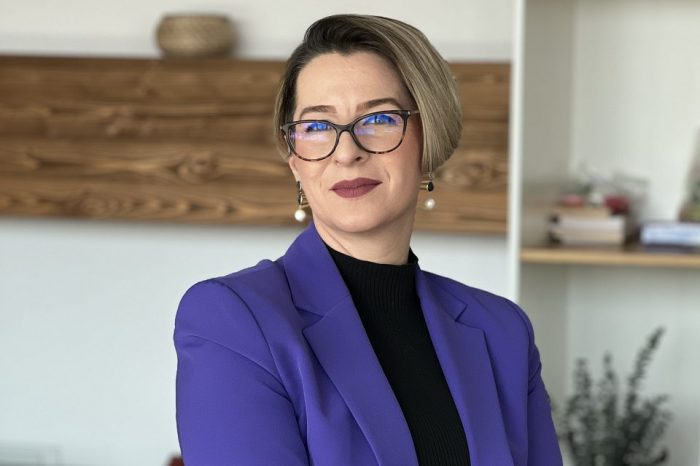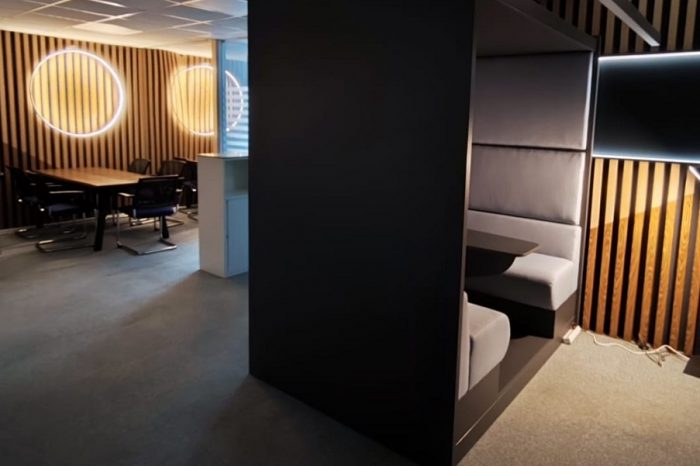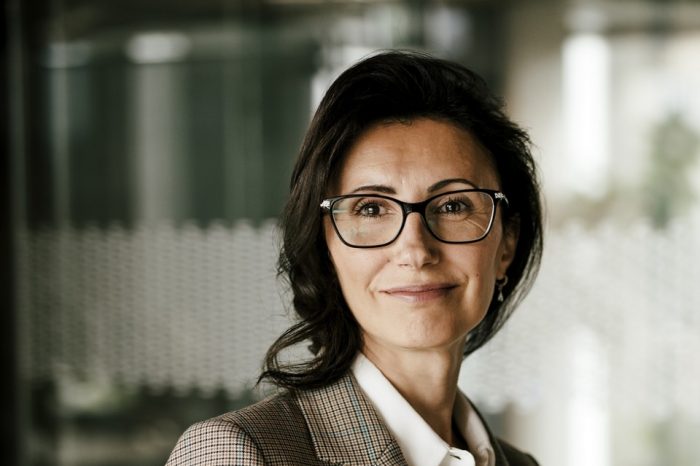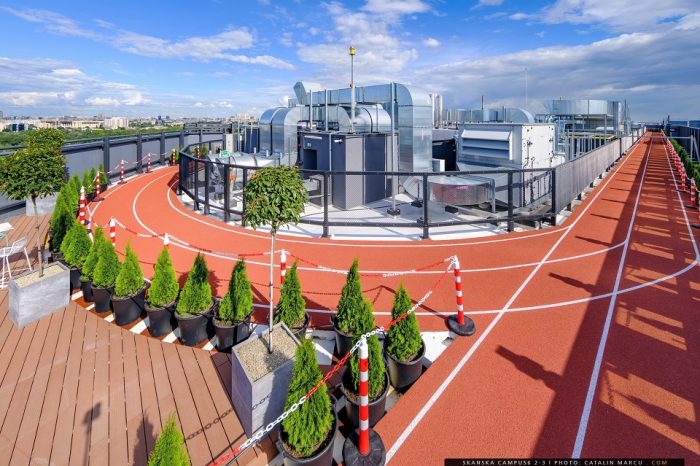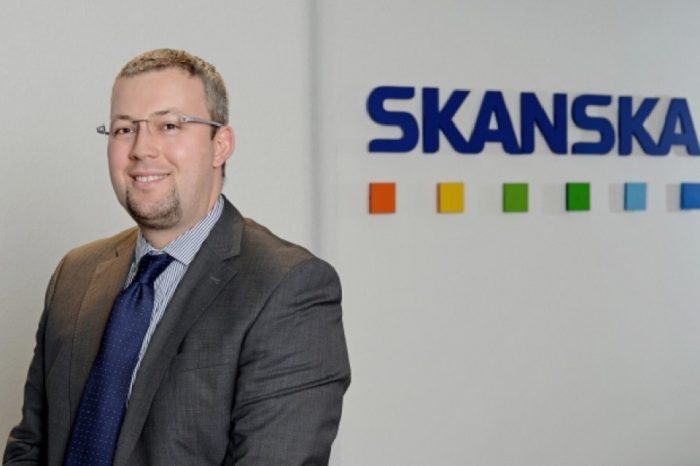Skanska in EEC: Pandemic reshapes employees’ perception of ideal workspace
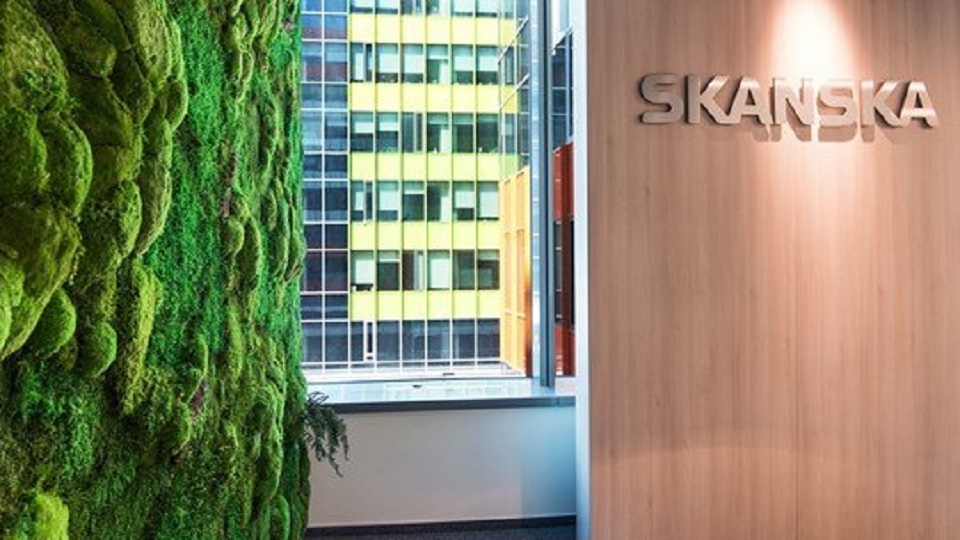
According to Skanska’s 5ecently released survey in Central and Eastern Europe, almost half of employees in Poland, Romania, Hungary and the Czech Republic now go to the office every day and now have specific preferences regarding their job.
The study was conducted by Skanska, Europe’s largest office developer, in partnership with research and analysis company Zymetria. As part of the online quantitative survey, using the CAWI method, responses were collected from 2,000 office workers living in large cities in four countries – Poland, Romania, the Czech Republic and Hungary.
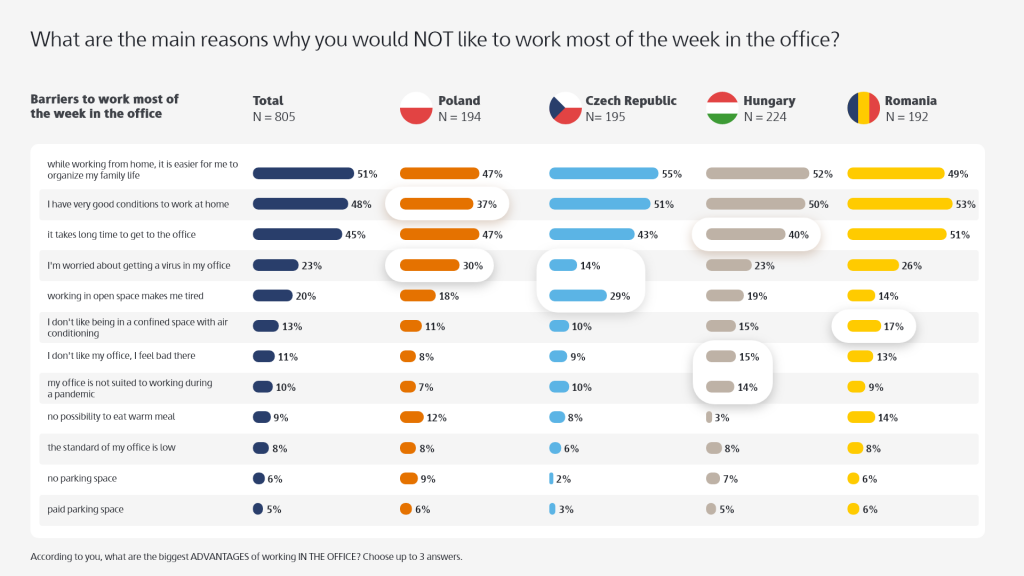
The study presents an analysis of the responses of 2000 employees from four Central and Eastern European countries – Poland, the Czech Republic, Romania and Hungary. The main purpose of the study was to gather data on, inter alia, the perspective of employees regarding the conditions of their work space and therefore the future of office space. The current situation of the way of working in CEE and Romania Currently, almost half of the respondents in the EEC (48%) work every day in the office, the same percentage being valid for Romanian employees who have returned to work in the workplace.
18% of Romanian employees work in a hybrid regime, with 3 or 4 days a week in the office, while 20% of Romanian employees work only from home. The most desirable option: the hybrid work model, but in which office work still predominates.
The survey shows that the “office” at home is not the ideal solution in the eyes of employees in CEE, respectively in Romania – the share of those who prefer to work only from the office is higher compared to those who prefer to work only from home.
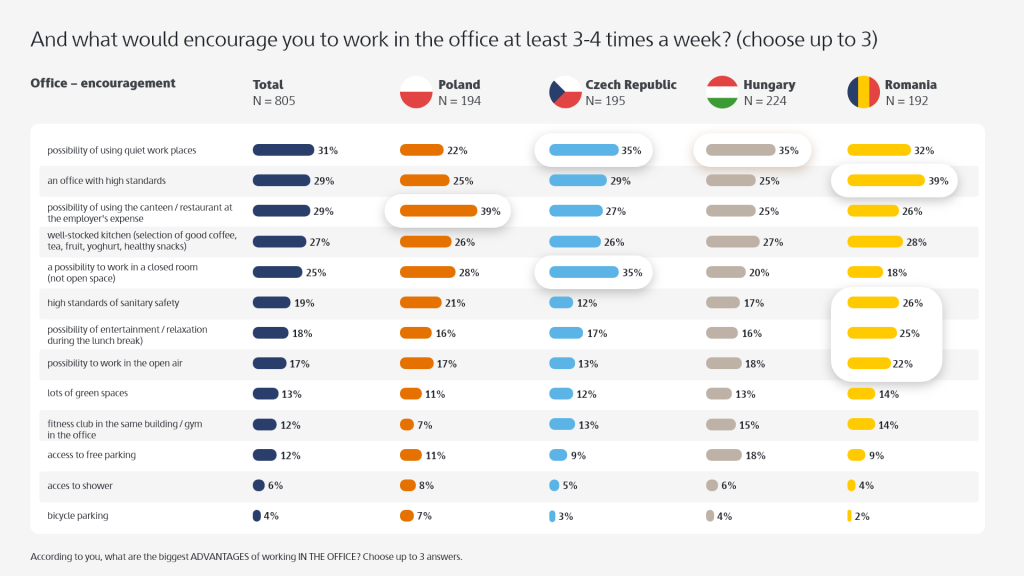
As the study proves, the region is moving towards a hybrid model, but in which the preference for office work still dominates: for 51% of the employees surveyed, the ideal work option involves at least 3-4 days a week worked from the office. This trend is visible in all EEC countries.
Specifically for the respondents from Romania, 27% would opt for office work of at least 3-4 days a week as the ideal working model, while 22% of them would like to work exclusively from the office and 19 % would prefer to work only from home.
New office space needs to offer more than before the pandemic The need to move the office home has also changed the daily routine for many people.
The most advantageous aspects of homework listed by CEE employees include the ease of organizing family life (51%), good working conditions at home (48%) and saving time to travel to the office (45%). According to the study, for Romanians, the good conditions in which they work from home prevail (53%), followed by the time saved once they no longer have to commute (51%) and the ease of organizing family life (49%).
“The pandemic has played an important role in determining the future of office space and has begun to shape new needs among employees, who now have other expectations and desires regarding workspaces. Offices need to reinvent themselves and adapt to the new context. People want to find in office spaces increased comfort, high quality IT equipment and a guarantee of safety in terms of health. Fun and relaxation during lunch breaks are also more important among employees, as is the opportunity to work outdoors. This study gave us the opportunity to understand the wishes of Romanian employees in the context of CEE and they will certainly become important landmarks for both employers and developers in the coming period “, says Anne-Marie Diaconu, Leasing & Asset Management Director within the development division of Skanska CEE in Romania.
The study notes a number of differentiators in terms of issues that would motivate employees from the four countries to return to office: For Romanian employees the most important thing is that the workplace achieves high quality standards, including health safety and the possibility to relax and work outdoors, while for employees in Poland, a first motivating factor would be to bear the costs of food services by the employer.
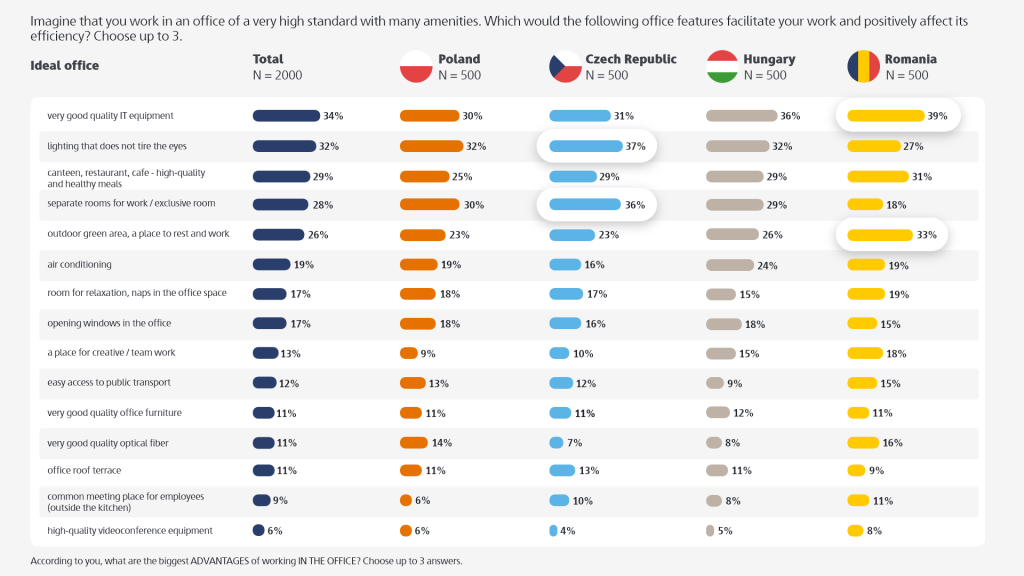
Employees in the Czech Republic and Hungary, on the other hand, want quiet jobs or individual, separate work spaces. Hungarians would also appreciate free parking spaces.
The office that employees want must provide comfort, security and high quality IT equipment.
Among the first three indicators of an ideal office for Romanians are: – – endowment with high quality IT equipment (39%), green spaces, open for work and relaxation (33%) and cafes, canteens or restaurants that offer tasty and healthy food . Other crucial aspects include a quiet space that allows concentration (32%), professional lighting of the space that does not tire the eyes (27%), separate or individual work space (18%) and special places for socializing with the team and sessions. creative (18%).
“The new expectations of the employees will shape the way in which the office buildings will be managed from now on, with an increasing attention on the aspects related to hospitality. We are moving towards high quality spaces, which provide facilities centered around the concept of well-being: from air and lighting to health safety, green areas and recreational spaces, access to healthy food. The results show that especially for Romanians all these are extremely important. Green areas and health security weigh the most in the decision to return to office. The Care for Life Office Concept implemented by Skanska and the WELL Health & Safety Rating certification attest to our concern in this regard. They recognize the ability of Skanska buildings to function adapted to these new times and needs, offering solutions prepared to make employees always feel good and safe “, adds Anne-Marie Diaconu.
Among the restraints that Romanians have regarding returning to the office are: the impossibility of serving a hot and healthy meal at work (14%), 17% do not want to spend their time in an enclosed space, with air conditioned and 26% are afraid of contacting the virus upon return to office.
The study confirms the high concern regarding safety rules for all employees in the four EEC countries. At the regional level, the results show that high health standards can encourage returning to work in offices, while their lack causes fear of contracting the virus.
Daily disinfection of the office (41%), lower density of office population (37%) and contactless solutions (37%) are the main factors that would positively affect the sense of security of employees in the office.

